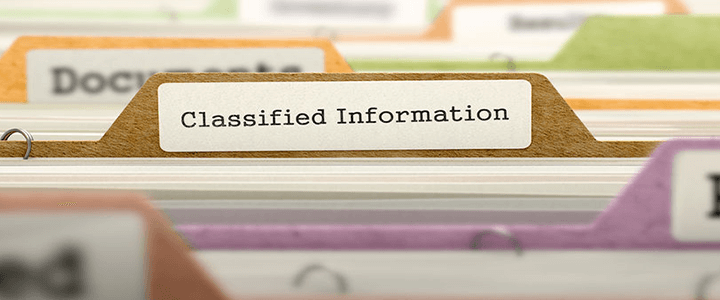In March 2017, a former employee of the National Geospatial-Intelligence Agency (NGA), Mohan Nirala, was sentenced to 12-months and one day in prison for “willful retention of national defense information.” In a nutshell, he took classified materials home from his work as a full-time imagery analyst at NGA from February 2009-2014.
His clearance was suspended on January 2, 2014 and FBI Special Agents arrived at his home on January 10, 2014 and conducted a forced entry in execution of the search warrant. Nirala was found the basement of his home. When asked, Nirala told them there were no classified documents in his home. They conducted a search and found more than 20 classified documents, ranging in classification from Secret to Top Secret. Some of the documents had been declassified using the scissors declassification methodology, cutting off the classification header/footer.
But wait, there’s more.
Over the course of the next two years, the FBI worked the case and in March 2016, they arrested Nirala (Title 18 U.S.C.§ 793(e) Unauthorized retention of defense information). Contemporaneously with the arrest of Nirala, they again searched Nirala’s home and found additional NGA classified documents and also conducted a consensual search of the home of his ex-wife. According to court documents, they found NGA classified documents in Nirala’s ex-wife’s house, hidden within their son’s closet. All told over 500 pages of classified documents were recovered.
China connection?
Nirala used his unclassified email account at the NGA to transmit an NGA classified document out of the NGA. The criminal complaint shows Nirala transmitted NGA materials to an individual described as a “citizen of the People’s Republic of China” and a lawful permanent resident of the United States. The materials were marked SECRET/NOFORN. No further discussion of the China connection appears in the unsealed portion of the court documents.
pushed by paranoia, desire for retaliation
By all accounts Nirala, a PhD, was a cutting edge mathematician, having worked for ten years with NASA and six with the NGA. So why did Nirala keep classified materials at his home? A review of his submission to the courts makes the case that Nirala had nowhere else to store the materials which he believed were germane to his Equal Employment Opportunity (EEO) complaint he had filed against the NGA. The EEO complaint was followed by a retaliation claim. Nirala’s lawyer argues he felt isolated and alone, passed over for promotion and opportunity. Two of his EEO documents are described as being in excess of 1000 pages in length.
Thus, according to Nirala, the self-rationalization, perhaps one could describe it as paranoia, pushed him to keep his own document archive (at his residence). As the famous Paul Harvey would say, “And now you know the rest of the story.”
Related: 4 Case Studies for Your Insider Threat Training Program.
Lessons learned and questions unanswered
When an individual feels isolated, persecuted and undervalued, they may, as Nirala exhibited, take steps which place them at odds with their employer. In the case of Nirala, he took classified materials to his residence and then as detailed in the court documents, lied about it to the FBI, repeatedly. Classified documents were found over the course of three searches.
The questions left unanswered through a review of court documents are:
- Who is the Chinese national who received the classified NGA materials via email?
- Are there additional hordes of classified materials which Nirala has squirreled away?
- How did Nirala come to the attention of NGA, and what was the impetus for suspending his security clearance?
Additional reading:
DOJ: Former NGA Employee Sentenced for Taking Classified Information



